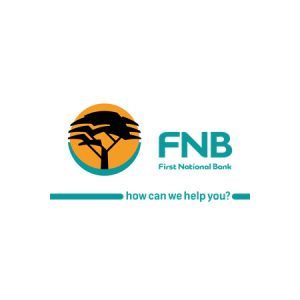
FNB has been harnessing artificial intelligence (AI) to reimagine risk management and forensic due diligence processes. The result is the ability to have a more robust forensic due diligence process, review profiles for various financial crimes holistically, more rapidly, and more consistently, and free up the time of analysts to perform the functions that they remain better suited to than AI. This doesn’t mean we need fewer analysts, but rather that their focus is now being used to conduct quality assurance of reviews, and to constantly feedback data into the evolution of the AI. On average, the use of AI frees up 70% of analysts’ time, and generating a forensic synopsis ready for a human analyst to review that previously took hours can now be completed in as little as 8 seconds.
AI is growing more prevalent in a wide range of industries, from breast cancer screening tools developed by Google, to analysing imagery captured by drones on farms to combat disease or optimise harvesting. In all instance, AI is more adept at considering large datasets.

When it comes to banking, AI can serve a number of purposes, but it’s especially useful for risk management, because it’s able to consider a huge array of variables simultaneously, identify patterns of behaviour by extrapolating from massive datasets, provide insights and reviews rapidly that can then be assessed by human analysts, and — ultimately — assist with decision-making while increasing the accuracy of those decisions and reducing false positives.
As a bank, FNB is required to monitor certain regulatory and financial risks, including tax evasion, money laundering, fraud, and insider trading. Traditionally, this is a time-consuming and laborious process that requires human analysts to gather large swathes of information, review them and generate insights from them, write rationales supporting their thinking, and finally, make decisions about potential or perceived risk.
With our AI-enhanced forensic due diligence process solution called “Manila”, FNB is able to meet all of those regulatory requirements, but decisions can be taken more efficiently, faster and produce outcomes with enhanced accuracy.
How Manila works
Much like a human analyst would, Manila begins by creating a single view of the customer from across the bank. This can include data from up to 50 sources, including their spending activities and other transactional activities within FNB’s products or platforms.
The AI then checks for any red flags within the organisation’s data about a customer. These include, for instance, anything to suggest a mule account, tax evasion, or links to other high-risk customers. Manila then starts putting together an insight report on the customer, which it delivers in natural language, and this information then guides the human analyst when they’re doing a review. Manila usually takes between 8 and 13 seconds to generate a forensic synopsis ready for a human analyst to review. Sometimes this process can take as long as a few minutes, depending how big the dataset being reviewed is, but that’s still hours less than it would take an analyst.
Perhaps most impressive, though, is the AI’s ability to produce a written analysis and a rationale outlining behavioural evidence around financial crime. An analyst uses these to help them make the decision whether or not a certain customer is high-risk. Because the solution is so consistent in its output, there’s a 70% reduction on average from the previous time that was required to provide suitably detailed and thorough quality assurance.
So, how does Manila achieve high levels of accuracy and competence? Because the dataset used to train is using the best reviews as inputs. The result is rationales that include descriptions of money flows and transactions, in easy-to-understand language, with familiar formatting, and complete with any adverse media coverage of the customer, that would otherwise potentially take a human analyst many hours to source and verify.
The shifting role of human intelligence
The AI system, Manila, gathers data from multiple sources, creates a single view of a customer, and provides insights and a rationale to guide the decision-making process. The human analyst, meanwhile, provides quality assurance and the final recommendation, but now in record time.
Previously, this process, when undertaken entirely by a person would take in the region of 170 minutes. With the help of AI, that process is reduced to around 40 minutes. Similarly, depending on the complexity of the customer or the request, producing a synopsis now takes a matter of seconds, rather than hours or days. The quality of the analysis and report hasn’t changed, nor has the quality of the outcomes. What’s changed is the process and how speedily a decision can be reached.
And in addition to being a more rapid process, the forensic risk management process is now a more holistic and accurate one. It’s difficult for a human being to look at all risks at once to get a complete view of a customer. But this is precisely the sort of task that AI excels at.
Reinventing risk management and ways of working
Manila isn’t merely changing the forensic process, but also ways of working for FNB. We are heeding the call of the president during the COVID-19 lockdown to enable our staff — wherever possible — to work remotely. Our AI solutions enable our analysts to do quality assurance and approvals remotely, more rapidly, all while maintaining the highest standards.
We’re exploring technology to better serve customers and be more efficient, while also stimulating a culture of building solutions in-house. Not only does this approach help drive productivity, but by creating solutions rather than importing them, we develop the skills of our people, can scale solutions across different functions, and keep the economy of South Africa growing while imbuing our people with world-class abilities.
Helping protect our customers and ourselves
Better risk management also means helping protect our customers and our platforms and services. It means protecting customers as they transact and interact with other services.
With remote working set to become increasingly common, our shift in culture and our ongoing efforts to constantly innovate mean we’re forever exploring better and smarter ways to maintain productivity while improving the lives of our analysts, and our customers. AI helps our analysts work smarter not harder, while maintaining quality and keeping our customers safe.
Risk will always keep evolving. Our solutions and responses to it will too.
INFO SUPPLIED BY FNB.

